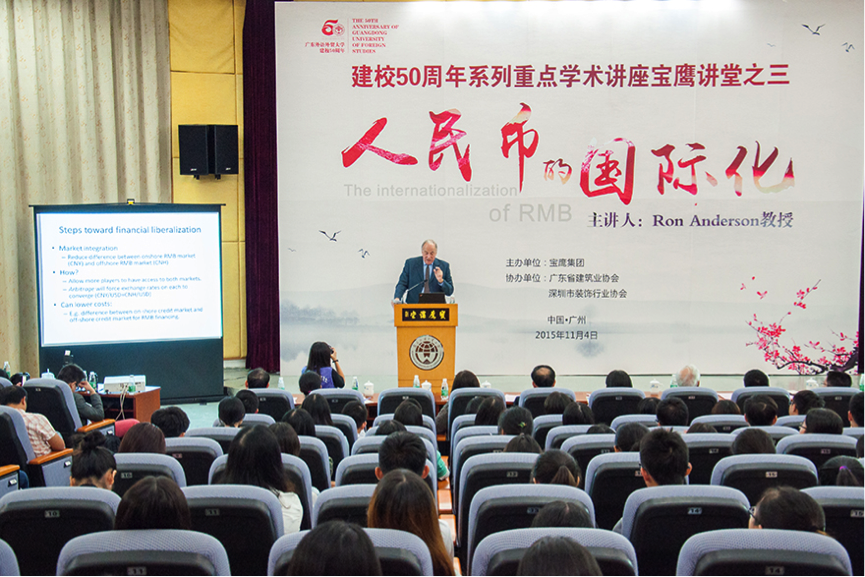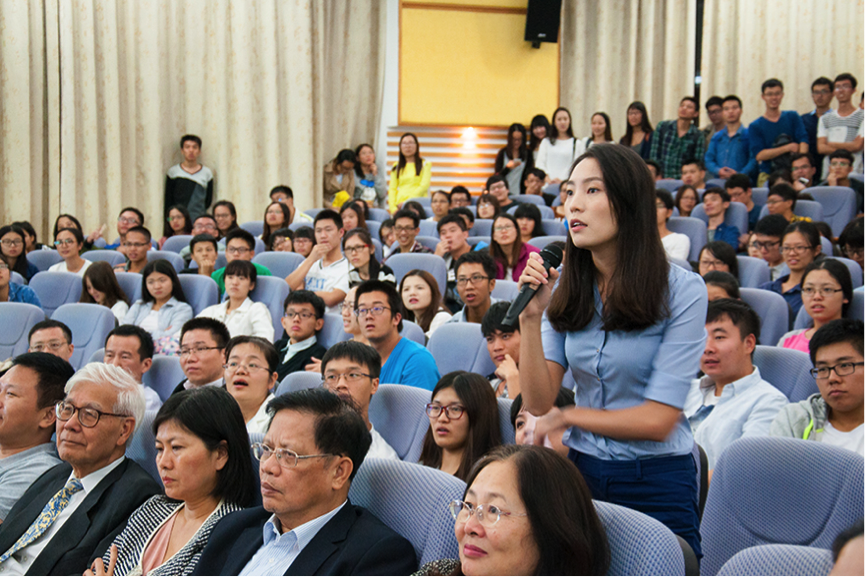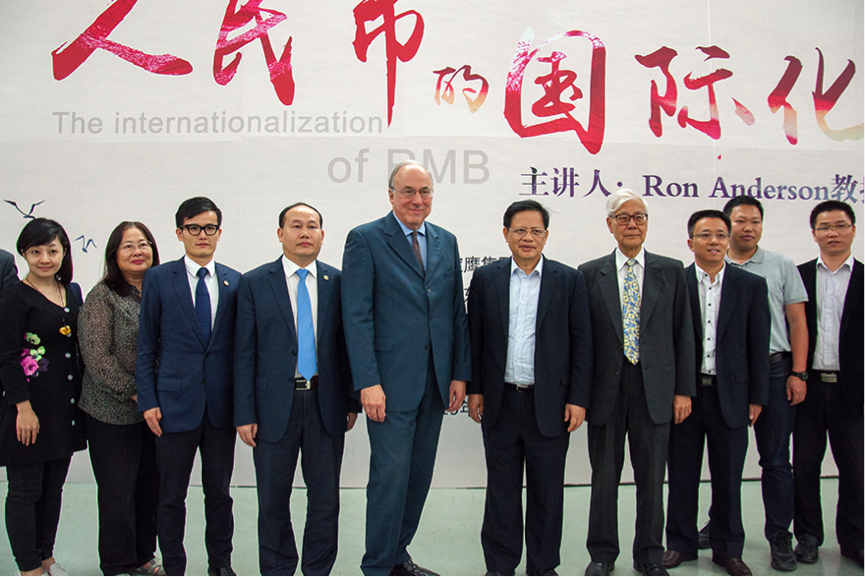On the evening of Nov. 4th, the 3rd lecture in the 50th anniversary of GDUFS series, The Internationalization of RMB, was held on the south campus by Professor Anderson from The London School of Economics and Political Science. Vice President YANG Aiming hosted the lecture.
Anderson started from the facts of China’s efforts of promoting RMB into the SDR currency basket. He also illustrated the reasons for having difficulties in promoting this process: without direct advantages, lack of motives in financial markets, and so on. Since the reform and opening up, China has centered on the market economy, which brought possibilities for the liberalization of the financial market. He also showed a graph of the changes of China’s GDP from the 1950s to today. The GDP has risen from 5% before 1970s to 35% in 2008, which was amazing significant number for China. He then explained the next step of opening the financial market. There was no doubt that the liberalization of financial markets would bring various advantages to China, but during this process, China would also face a lot of challenges.

Anderson giving a lecture
All seats were filled during Anderson’s lecture. When it came to the Q&A section, students were seizing the chance to communicate with Professor Anderson face to face. YI Xingjian, Dean of the School of Finance, believed that the internationalization of RMB requires a centered bond market with stronger mobility. He also raised a question about the development of bond markets. Professor Anderson’s brilliant answer won the applause of all the audience.

Q&A part
After the lecture, students indicated that they had a better understanding of the internationalization of RMB and a clear orientation of it. Student Lee (female), from the School of Finance, said that the most impressive part of the lecture were the different ways of thinking. Many Chinese people objected to the internationalization of RMB due to their conservative ideas. However, Professor Anderson talked about a lot of advantages of this problem, which gave her lots of inspiration and broadened her horizons. YI Xingjian stated: “This lecture is very successful. It is a celebration of the 50th anniversary, and also helps the students to form the understanding of practical problems.”
The guests of this lecture were: DENG Wenzhong, LI Daxi, DU Deng, leaders of the Baoying company, students and teachers of GDUFS, South China University of Technology and Guangdong University of Finance and Economics.

Group photo

